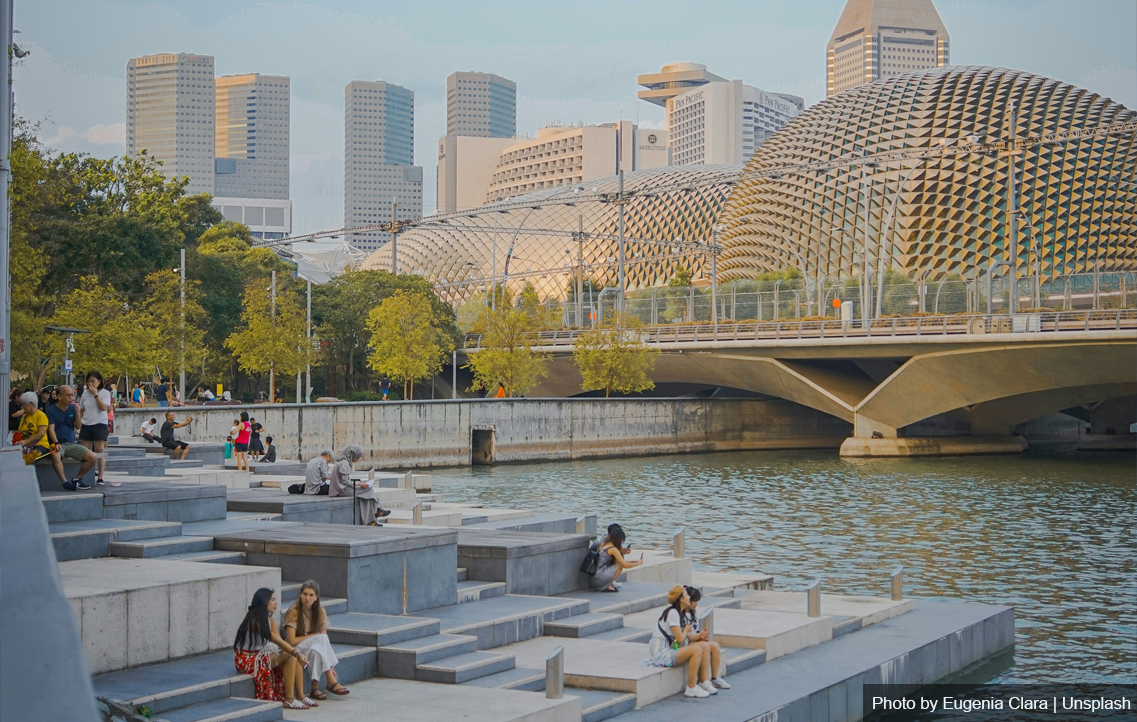
Singapore’s fourth Prime Minister, Lawrence Wong who received the leadership mantle on 15 May 2024 from Lee Hsien Loong, is taking neither his position nor that of his party for granted.
In an interview with The Economist on May 6, he said that Singaporeans want his People’s Action Party (PAP) to be in power but have a stronger opposition voice in Parliament too. When he goes into the next election, he will not assume that the PAP will be automatically returned to power or that he will be the next prime minister.
For some, Singapore’s political system is defined by the dominance of the PAP that has governed the multiracial island-state since self-government from its British colonial masters in 1959 and independence in 1965. For its party stalwarts, it is better characterised by a rising tide of contestation in electoral politics and civil society today.
In the general election on 10 July 2020, the PAP returned to power with 61.2% of the popular vote, a reduction of 8.7 percentage points from the 2015 election, and lost four more seats to concede a total of 10 to the opposition Workers’ Party. It held 12 seats by less than a 5% margin.
In my institute’s post-election polls conducted with representative samples of citizens after the 2011, 2015 and 2020 elections, more than 80% said that having elected opposition members in Parliament, having “checks and balances in Parliament”, and “the need for different views in Parliament” were important issues that shaped their votes, with the better-educated professionals more likely than others to believe the country is better served by a greater level of political pluralism.
What matters too is how the Government engages citizens and civil society to shape policy and public programmes between elections.
In the current Parliament, Wong and his corps of younger political leaders ran a mass citizen engagement exercise called “Forward Singapore” for 16 months, among 200,000 people. It resulted in a roadmap for social reform to provide greater support for marriage and parenthood, senior care and retirement adequacy, career success through education and skills-training, and transitional support for those “involuntarily unemployed”.
Other forms of citizen engagement include youth panels that allow participants to present policy proposals to the Government, and “alliances for action” that draw public- and private stakeholders to develop policies and programmes in specific sectors.
A Singapore Government Partnerships Office was formed recently to institutionalise this practice of collaboration between state and society.
How does civil society figure in all this? The coalitions and formal organisations of citizens that pursue specific social agendas and alternative ideological frameworks for development continue to be ambivalent about democracy in Singapore.
For them, it has not been a linear path to greater political openness and stronger civic rights. Some cite the introduction of new laws that curb freedom of expression and association to prove the point.
The Prevention of Online Falsehoods and Manipulation Act, of October 2019, crafted after extensive public consultation, provides a regime of notice of correction, forced removal, and judicial review of material deemed to propagate untruths as statements of fact online, specifically in relation to state matters.
The Foreign Interference (Countermeasures) Act, of October 2021, polices those deemed to be politically significant persons and organisations for foreign financial support in case they are covertly groomed to influence politics and elections for external interests.
While the issues underpinning these new laws will be familiar to those living in open societies in this age of reactivated geopolitical rivalry and pervasive social media, it is reasonable to expect that civic activists would chafe against them and worry if they will cripple dissent here.
In his analysis of these developments, public intellectual Cherian George sets out his case in a new book on civil society, We Are Not the Enemy, stating that “(i)n Singapore, though, those who promote ideas the government opposes are demonised, harassed and blacklisted.”
Still, it is notable that the Government has responded to some of the most important areas of activism in recent years, including efforts to improve migrant worker rights and tighten regulation of their working and living conditions, repealing a law that banned sex between men, which passed in November 2022; and, after a decade-long quiet civic advocacy, the lifting of a ban on Muslim nurses wearing headscarves in the otherwise strictly secular public healthcare sector in November 2021.
Some may feel the state has listened to them and enhanced social inclusion, but others feel this is mere tinkering. Researcher on poverty and homelessness in Singapore, Ng Kok Hoe, argues the reforms “do not recalibrate the roles of state, market and family, or rethink our priorities as a society.”
Two of the leading lights of civil society, Constance Singam and Margaret Thomas made this plea writing in We Are Not the Enemy: “It is time for civil society to be fully recognised as a vital part of this Singapore system. It is time for activists, for all activists, to be accorded dignity and respect. It is time for the Singapore soul to be complete.”
In his swearing-in speech, Wong said he aims to tap the “combined energies, imaginations and strengths of all Singaporeans” in a model of shared leadership. Hopefully, even the sharper edge of civil society will feel included and acknowledged as he builds his new system of democratic and collaborative governance.
Dr Gillian Koh, Senior Research Fellow, Institute of Policy Studies, National University of Singapore
This piece was first published in Asialink on 27 Jun 2024.
Top photo from Unsplash.
